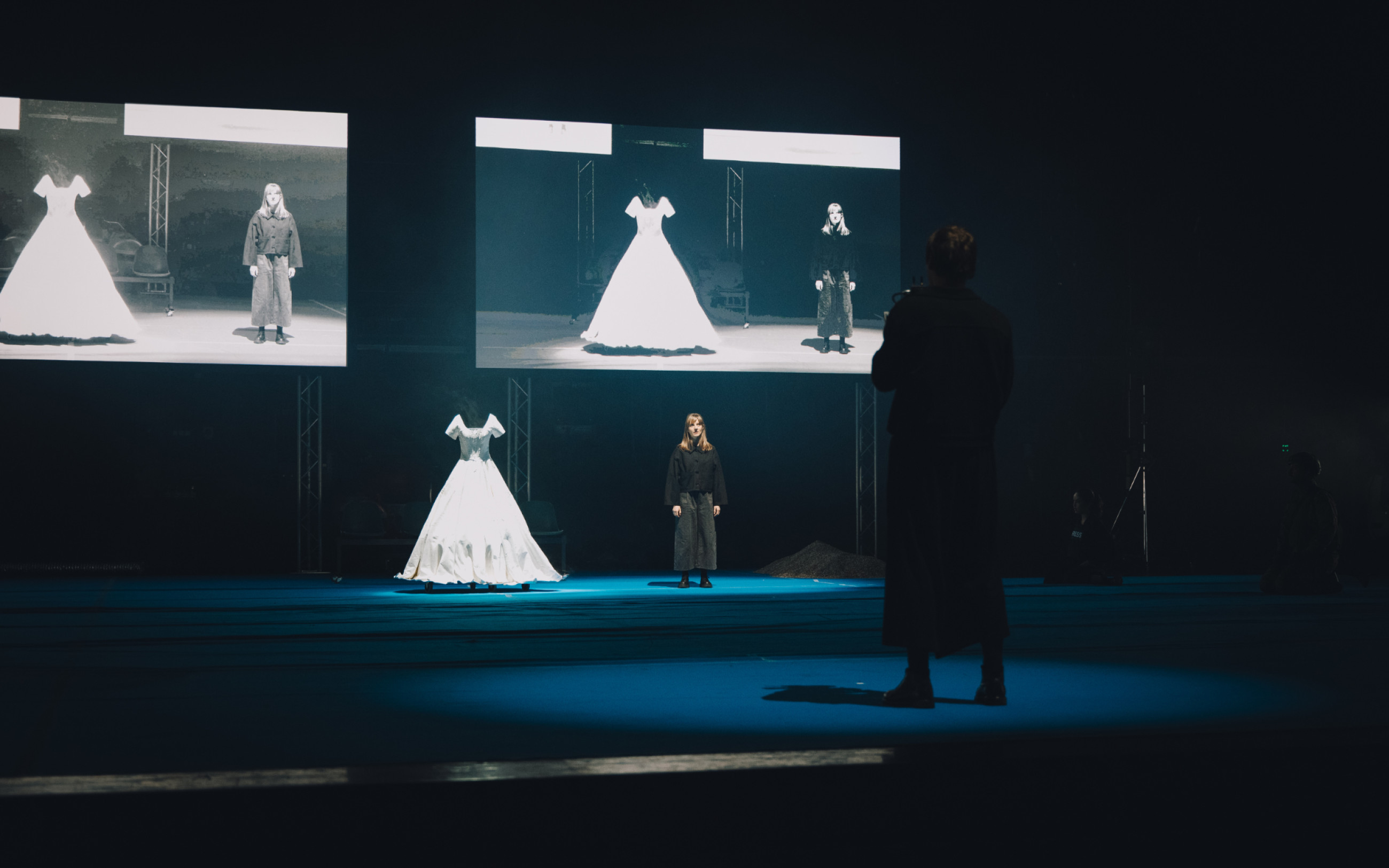Urša Majcen, Sašo Vollmaier, Jan Krmelj, Iztok Kovač
Orpheus and Eurydice
One of the most striking myths about death and mourning, dating back to ancient Greece, is the story of the mythical singer whose art continues to stir humanity today. Orpheus, playing the lyre, did not captivate only people but also enchanted all of nature. Birds fell silent to listen to him, animals left the forests to follow him, rivers stood still at his songs. The gods secretly eavesdropped on the feasts at which he played. The water nymphs of Naiads rose from the waves as soon as they heard his playing. Among them was Eurydice, whom he fell in love with and married.
But their happiness did not last long. Shortly after their wedding, Eurydice died after being bitten by a deadly snake. Orpheus buried her and mourned for her, but time did not heal his pain. To get her back, he went underworld. There, the power of his mourning moved both the three-headed dog Cerberus, the bloodthirsty guardian of the world of the dead, who let him pass by the entrance, and the elderly ferryman Charon, who took him deeper underground by the river Styx. With his song, Orpheus also charmed the ruler of the underworld, Hades, and his wife Persephone. They promised to give Eurydice back to him, but with a condition – he must by no means look back while leaving the Underworld. Orpheus gave them his word and walked with Eurydice towards the exit. When he could no longer hear her footsteps, he broke his promise. The last thing he saw was Eurydice’s fading pale face.
Orpheus and Eurydice, the poetic show, will be based on a textual reinterpretation by playwright Urša Majcen and a musical score by composer Sašo Vollmaier, directed by Jan Krmelj and choreographed by Iztok Kovač, exploring the form of musical theatre. At the intersection of various media and artistic processes, the artists will touch upon the themes of death and life after death and explore the possibilities of their artistic representation. How do we see, hear, think and feel death and the afterlife in art? What does it mean to “not look back” on stage? How is the Underworld as the home of the souls of the deceased associated with the theatre stage as the site of fleeting and transient images?
Director Jan Krmelj (1995) won the Borštnik Award for directing Rrose Sélavy’s Rapture at the 59th Maribor Theatre Festival 2024. The production of Rapture won five Borštnik awards at the festival.
Orpheus and Eurydice , 2024
Poetic show
World premiere
Premiere: 23. January 2026
Performance length is 1 hour and 40 minutes and has no pause.
Creators
Playwright
Urša Majcen
Composer
Sašo Vollmaier
Director
Jan Krmelj
Choreographer
Iztok Kovač
Dramaturg
Petra Pogorevc
Set designer
Lin Japelj
Costume designer
Brina Vidic
Language consultant
Klasja Kovačič
Sound designers
Matej Čelik, Jure Žigon
Light designer
Andrej Hajdinjak
Video designer
Gašper Torkar
Authors of text adaptation
Jan Krmelj, Petra Pogorevc
Author of musical arrangements and corepetitor
Sašo Vollmaier
Actors
Persephone
Nataša Tič Ralijan
Virginia Woolf, Sylvia Plath, Sarah Kane
Ajda Smrekar
Eurydice
Lena Hribar Škrlec
Orpheus
Matic Lukšič
Charon
Filip Samobor
Cerberus
Lara Wolf
Tantalus
Gregor Gruden
Sysiphus
Joseph Nzobandora – Jose
Ixion
Gal Oblak
Chorus
Veronika Železnik
Filip Štepec
Mattia Cason
Matija Franješ
Tina Habun
Fiona Macbride
Carolina Alessandra Valentini
Nika Zidar
Hades
Sašo Vollmaier
Co-producers Cankarjev dom, En–Knap


Opening in January 2026 in the Gallus Hall, Cankarjev dom
All performances for subscription holders and regular will take place in the Gallus Hall of Cankarjev dom.

